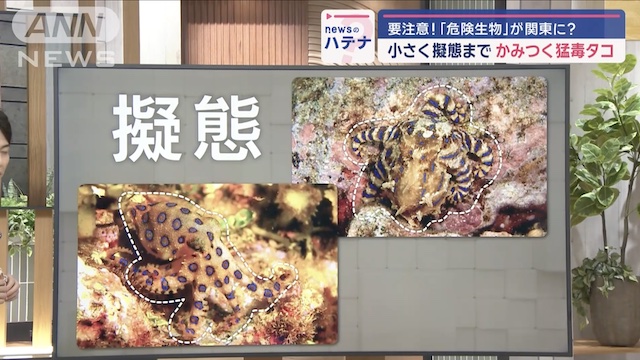TOKYO, Jul 06 (News On Japan) - With rising sea temperatures, the habitats of marine life are changing, and some of these changes involve dangerous creatures that require caution. One such creature is the venomous Blue-Ringed Octopus, which has poison hundreds of times more potent than cyanide.

As the summer vacation approaches, the Tokyo Metropolitan Police Department is issuing warnings. They state that in some cases, encounters with this octopus can be life-threatening.
Let's take a look at the Blue-Ringed Octopus in actual footage. When poked with a stick, its leopard-like patterns become more pronounced. According to the Shinagawa Aquarium, this is when the octopus might bite. Its saliva contains venom said to be hundreds of times more potent than cyanide, and a bite can sometimes be fatal.
Originally inhabiting the southern seas around Okinawa, due to the effects of global warming, it has recently been spotted near the Kanto region.
The Blue-Ringed Octopus is particularly troublesome because of its size. It is only about 10 centimeters long, small enough to be grabbed by a child's hand.
Another problematic feature is its ability to camouflage with its surroundings, such as rocks and seaweed, making it easy to accidentally step on. In the sea, it is even harder to notice, so wearing marine shoes to protect your feet might be a good precaution.
With the summer vacation approaching and people heading to the sea, the Shinagawa Aquarium advises people to enjoy marine activities by staying away from and not touching the Blue-Ringed Octopus.
Source: ANN















